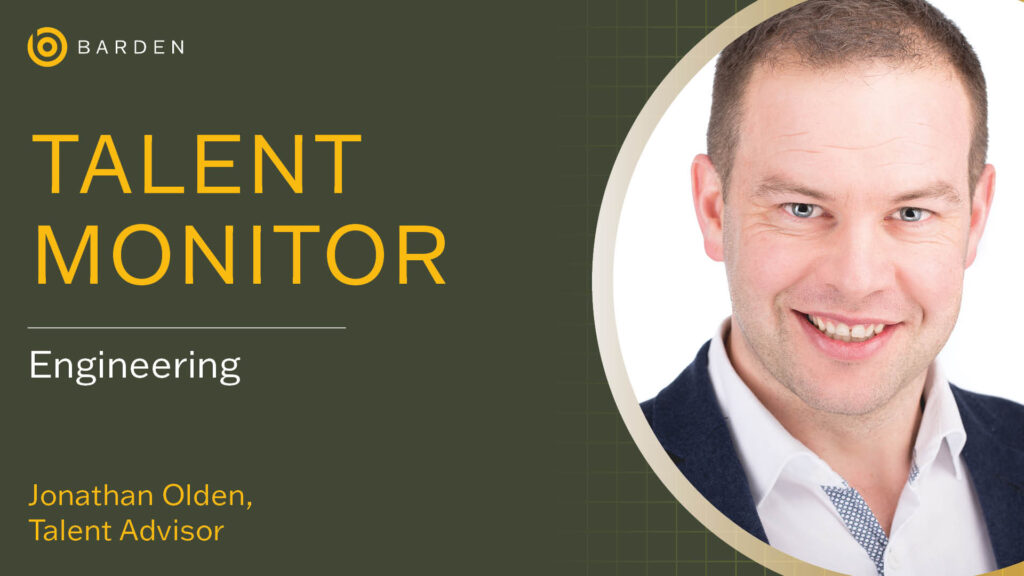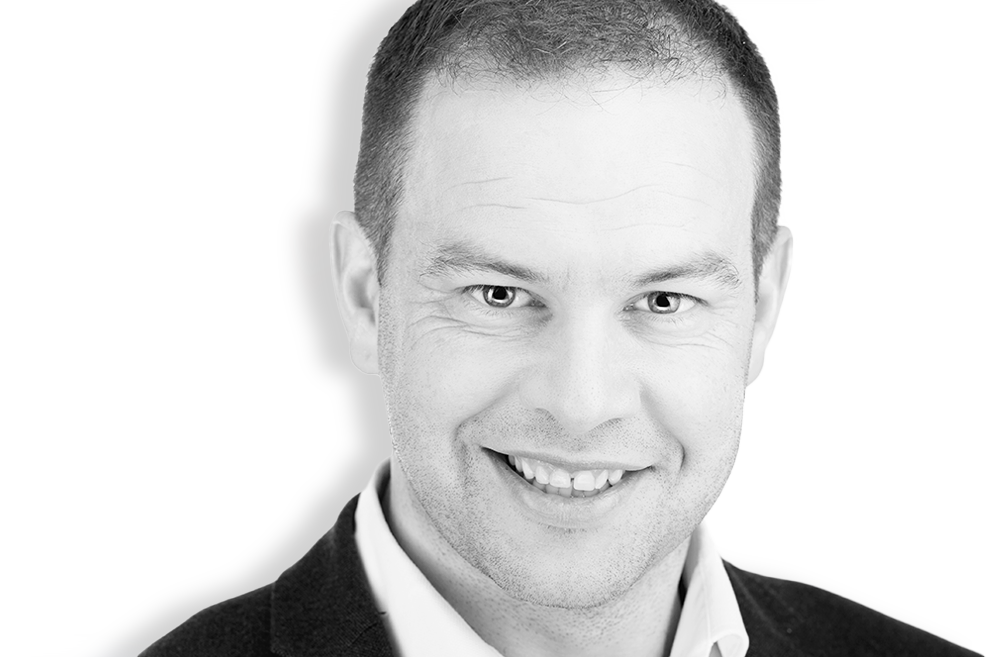Ireland’s engineering profession is a dynamic and vital sector, encompassing a wide range of disciplines such as civil, mechanical, electrical, and chemical engineering. The profession is known for its strong export performance, with engineering products and services accounting for a substantial portion of national exports.
The profession is known for its best-in-class talent originating from world-renowned engineering courses in Irish universities.
#1 Engineering Verticals
Engineering qualifications cover diverse fields such as those identified below. For this report, we have decided not to include an analysis of the civil or structural engineering professions.
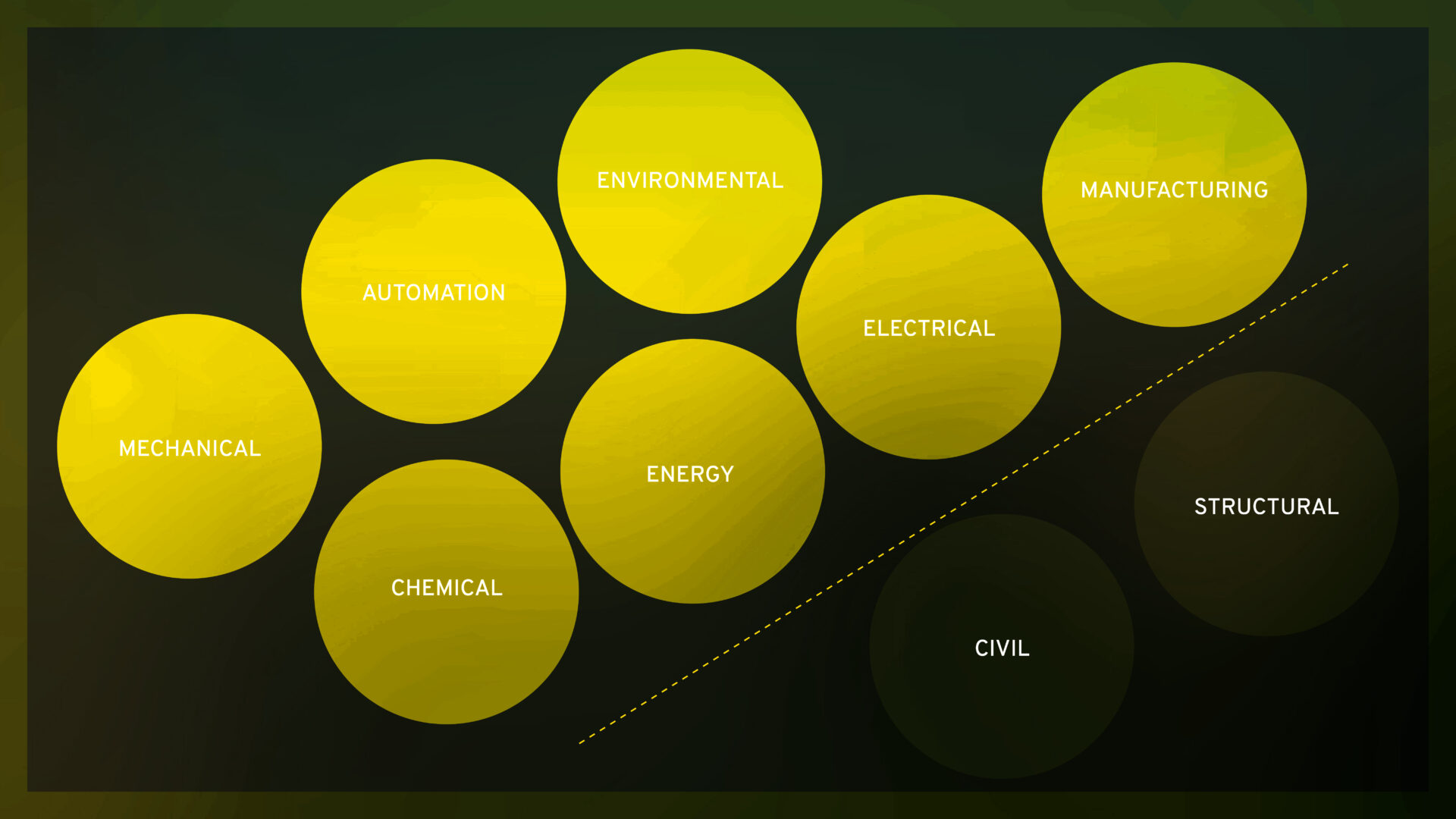
Each field has distinct roles: mechanical engineers design machinery, electrical engineers develop power systems, chemical engineers manage chemical processes and so on.
Illustrated below is where each of the above qualifications can sit within the engineering lifecycle.
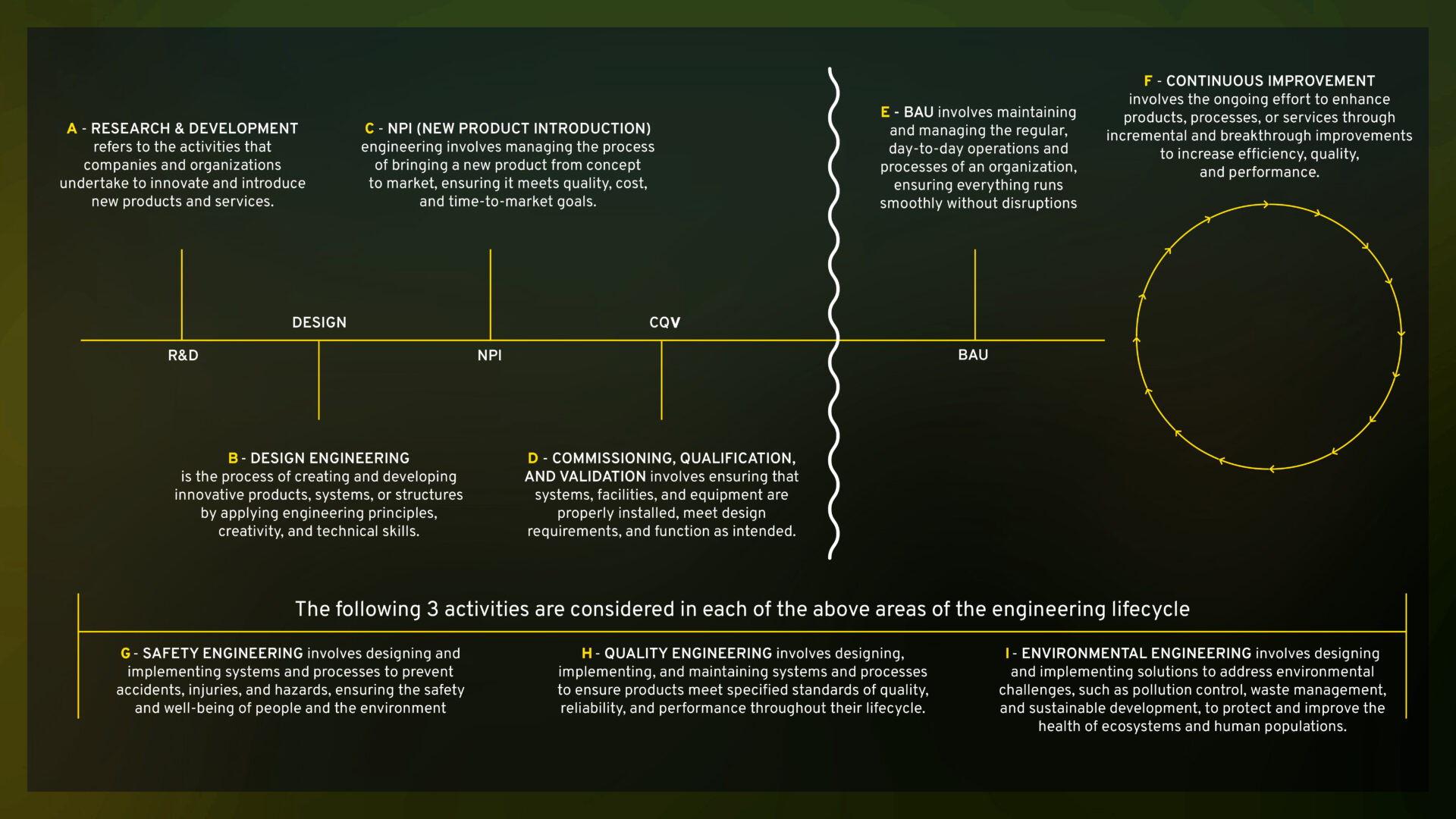
#2 Engineering Variables
Job title alone often does not capture the full scope of an Engineering role. Here are the key variables that help define what a position truly entails:
- Industry & Compliance – Compliance differences across industries significantly influence engineers’ career decisions, as they must navigate varying regulatory landscapes, which impact innovation, risk management, and the complexity of their work. Below is a snapshot of the intensity of regulations across industries.
- Size of business – Whether you are in an SME or a Multinational company, this can have a significant impact on several factors. If you are in an SME type business, your role is more likely to have a broader scope, perhaps including several different areas, i.e. an Engineering Manager covering manufacturing, operations, CAPEX, etc. However, for a larger multinational organisation, it may often be the case where your role is part of a wider function, e.g. NPI, R&D, CAPEX, Automation, etc. The larger the team, the more specialised each role is in most circumstances.
- Global/ regional/ local role – This again probably depends on the size of the business or the organisational structure. You may be working on a global scale, covering several sites, or you may be managing operations for one manufacturing site, or you may be managing operations for a whole region/or multiple regions.
- Sole contributor/ people manager – both SME and multinational companies have positions which often oversee or lead a team. It is also the case that both of these types of businesses will have sole contributor roles, e.g. Principal NPI Engineer, Principal R&D Engineer, Stand Alone Safety Engineering Manager.
- Jurisdiction – There will be different rules and regulations in every jurisdiction, be it customs, imports or regulations around manufacturing, packaging, etc. For example, a drink may be allowed to have a certain amount of an ingredient in one country but not in the next. This can influence manufacturing processes, etc, which in turn can influence a person’s decision when exploring roles in different regions.
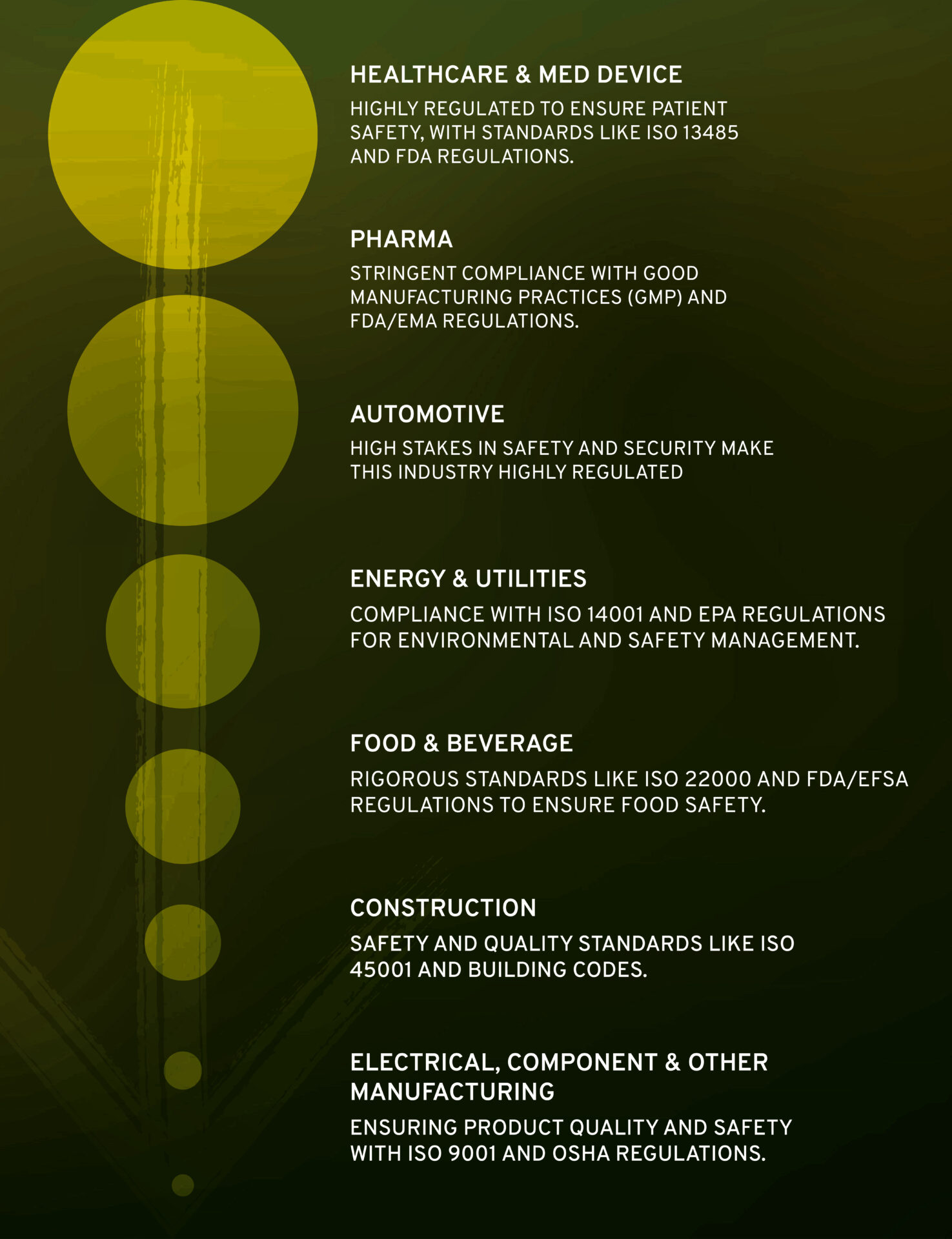
#3 Engineering Levels
Engineering levels typically reflect an engineer’s experience, skills, and responsibilities. Here is a general overview of how these levels might be described.

These levels can vary between organizations, but they generally reflect an engineer’s progression from learning and applying basic principles (L1, L2, etc) to leading and innovating at the highest levels (L8, L9, L10+, etc).
#4 Salary Data
Below is a high-level salary guide for engineers based on their years of experience and the size of the team they are responsible for, if they oversee a team. It is a caveat that the chart below is a guide, however, Barden’s engineering practice can help talent and hiring teams benchmark at a more precise level based on the scope of the role, nature of business, etc. This data was extracted from the Engineers Ireland salary survey 2025.
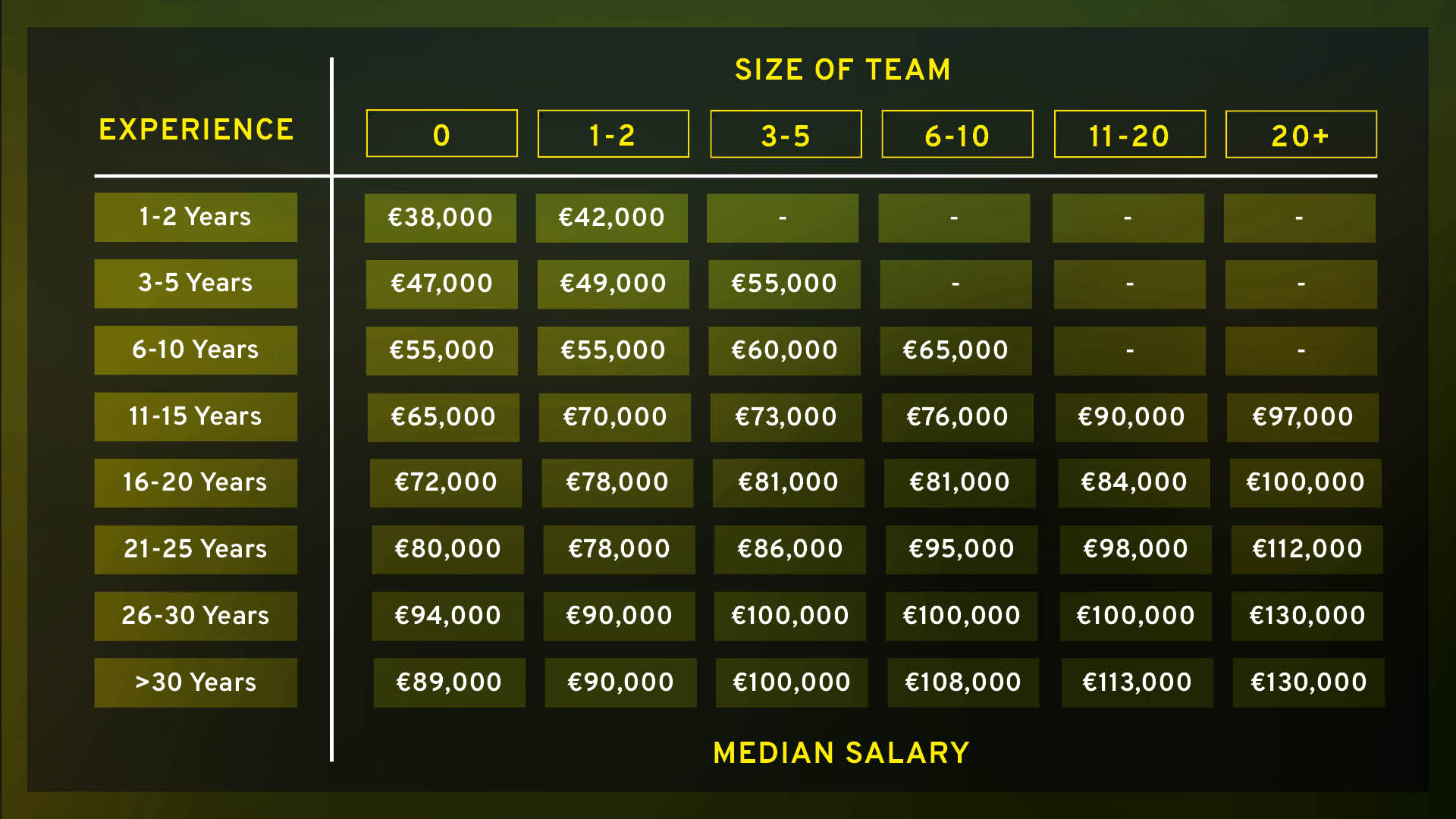
#5 Demand Versus Supply
Here is what we have observed from Q3 2024 – Q3 2025 in the Engineering talent pool in Ireland:
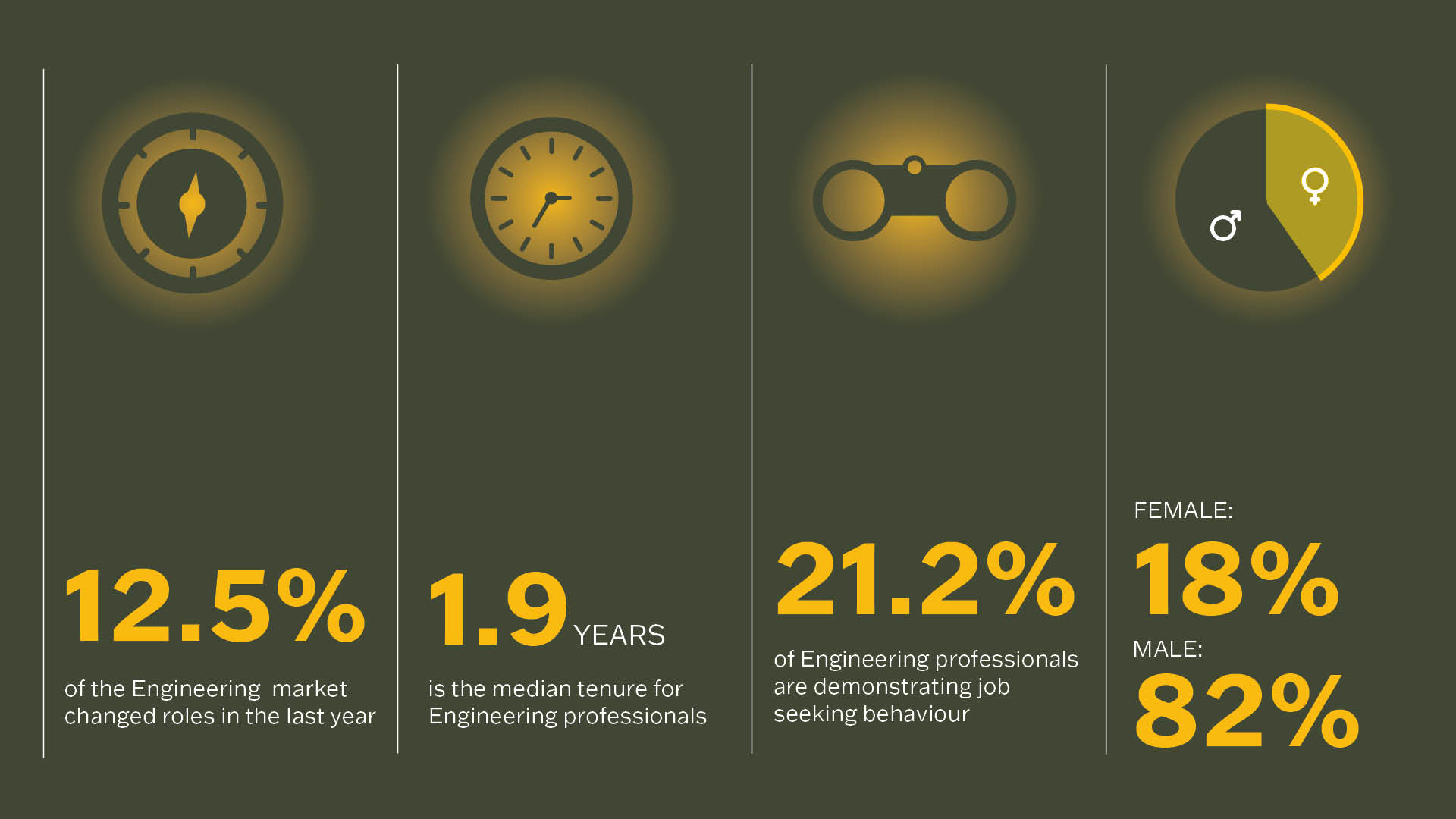
#6 What are companies doing to attract talent?
- Internship/ co-op/ grad programmes – Offering internships and co-op opportunities allows students and recent graduates to gain practical experience. Many companies use these programs as a pipeline for full-time hires.
- Promotion opportunities – Encouraging internal promotions helps create a sense of opportunity and career progression within the organisation. This strategy not only builds loyalty but also maintains a consistent corporate culture, saving costs associated with external hiring and training. Having regular communications around progression, performance, and future development can show talent that employers are invested in their future and can help to develop a sense of loyalty from employees.
- Investment in facilities & technologies – Companies are investing in new technologies such as new automation systems, robotics, etc, to streamline processes and improve efficiency. Providing employees with the latest tools and technologies makes the work environment more dynamic and appealing.
- Innovation & new products – Leading companies are attracting engineers by working on cutting-edge projects like AI integration, sustainable & next-generation technologies. They are also investing in advanced tools and health tech innovations, creating exciting opportunities for top engineering talent. Additionally, companies are focusing on projects that have a significant impact, such as developing AI-powered design tools.
- Strategic roles versus BAU – Strategic roles attract engineers by offering high-impact, innovative projects (e.g. Capital Programmes), while BAU roles focus on maintaining and improving existing systems. Engineers in strategic roles work on transformative initiatives, whereas BAU roles handle routine tasks. Companies need to balance both to ensure operational efficiency and strategic growth.
#7 Projected challenges for the next 12 months
For employers:
- Geopolitical uncertainty: This poses a significant risk to Irish employers due to potential tariffs and protectionist policies that could disrupt trade and lead to job losses.
- Skill Shortages: There is a significant shortage of skilled engineering professionals, particularly in specialised fields like project management and sustainability.
- Competitive Salaries: Companies must offer competitive salaries and benefits to attract top talent, which can be challenging given budget constraints.
- Retention: Keeping skilled engineers engaged and preventing turnover requires ongoing professional development and career growth opportunities
For Talent:
- Geopolitical uncertainty: This poses risks to Irish employees due to potential job losses from US multinationals relocating back to the US, driven by changes in tax policies and protectionist measures.
- Experience Requirements: Engineers may struggle to meet the specific experience requirements for many positions, especially when transitioning to new industries.
- Technical Interviews: Rigorous technical interviews that test problem-solving and practical skills can be daunting and challenging.
- Competitive Job Market: The high number of applicants for engineering roles means that standing out requires exceptional qualifications and networking.
In Barden, we understand that each team, role, and requirement is unique. If you would like to discuss what tactics and approaches would suit you, please feel free to contact Jonathan Olden, our Engineering Talent Advisor & Recruiter here in Barden (jonathan.olden@barden.ie); we’re where leaders go before they start looking for Engineering talent.
This information is accurate as per January 2026 and will be updated periodically. Data sources include Barden Proprietary Data, LinkedIn Analytics and other 3rd party data sources. If you have a request and would like real-time information to inform your hiring decisions, contact Jonathan Olden at jonathan.olden@barden.ie.


 Jump Back
Jump Back
